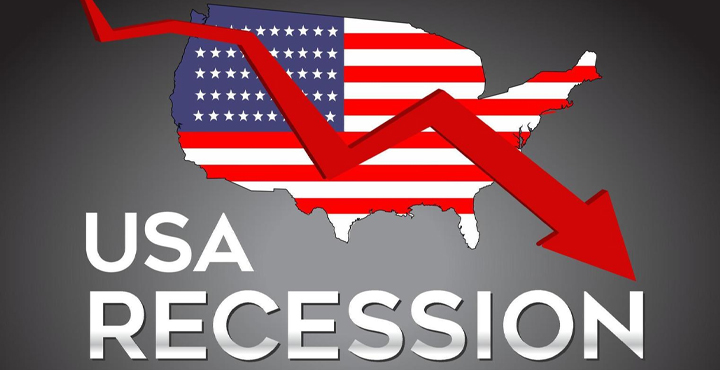
Recession in America
The recent inflation report has stirred concerns of a potential recession in the United States, with economists suggesting that the Federal Reserve might need to induce one to maintain its inflation target. The Consumer Price Index for March surpassed expectations, raising worries about inflation levels and the Fed’s response. This has led to a shift in market expectations regarding interest rate adjustments, with September appearing more likely for any potential easing measures. There’s a growing consensus that the Fed might need to reassess its inflation target to mitigate risks, but some argue that maintaining the current interest rate policy for years might be necessary to achieve this goal.
How it impacts India and the global economy?
India’s economy remains robust despite global uncertainties, with a projected real growth rate of 6-6.8% for FY24. This growth, although slightly lower than previous years, is fueled by strong internal consumption, which outweighs the country’s reliance on exports. India’s young demographic profile ensures sustained demand for goods and services, positioning it as one of the fastest-growing large economies globally.
Resilient Banking System:
Indian banks have improved their resilience through strict regulatory oversight, healthy asset quality, and adequate capital levels. This puts them in a better position to withstand economic downturns compared to their US counterparts. Additionally, India’s limited exposure to global uncertainties, both as a counterparty and guarantor, further strengthens its banking system.
Favorable Import Positioning:
India benefits from lower commodity prices due to the global slowdown, particularly in crude oil, metals, and edible oils. While moderately integrated with the global economy, India’s diversified exports and inherent strengths limit its vulnerability to external shocks.
Effect of U.S. Recession on India:
Economists anticipate a slowdown in India’s growth due to the impending US recession, which could affect exports and global commodity prices. The depreciation of the Indian Rupee against the US dollar is a significant consequence of this recession, making imports costlier but exports more competitive. However, India’s strong domestic economic fundamentals, coupled with positive factors like domestic consumption, provide a buffer against the adverse effects of a global recession. Analysts suggest that while India may face challenges, it is not poised for a full-fledged recession at present.
While the specter of a US recession looms, India’s economy appears resilient, supported by robust domestic consumption, a resilient banking system, and favorable import dynamics. Despite potential headwinds from global economic downturns, India’s growth trajectory remains intact, albeit with some adjustments and challenges along the way.











